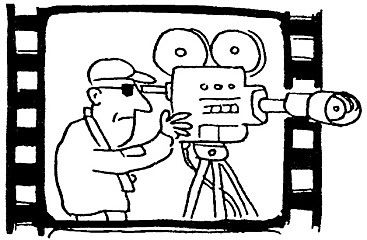The road to lasting peace in Congo is still very long and full of potential pitfalls and ambushes. But the agreement signed in Washington is a good start!
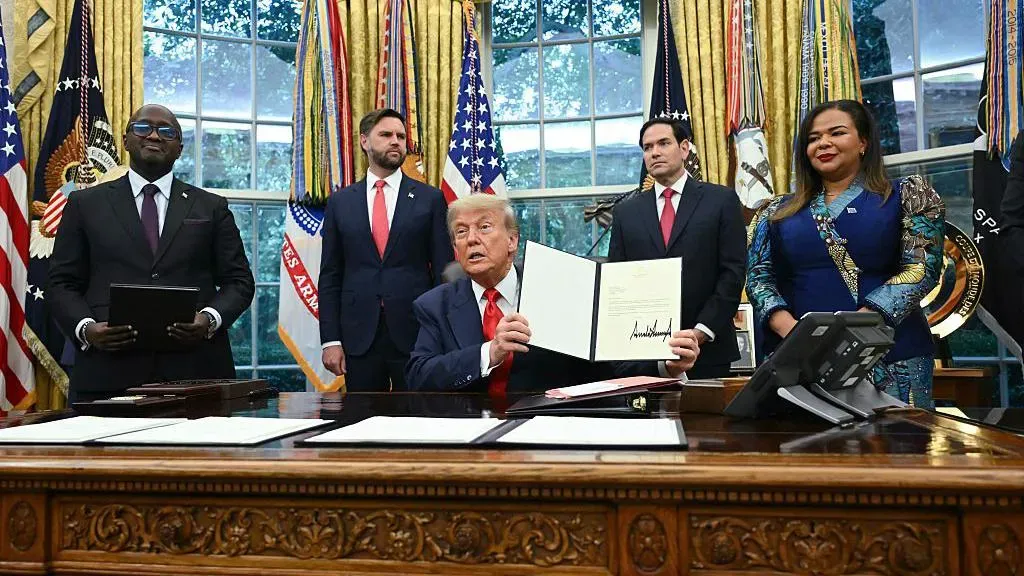
I had to briefly put my head under a cold shower when I first read the signed peace agreement between Rwanda and Congo yesterday. I expected a solution that would turn out much less positively for Rwanda and for the M23. President Tshisekedi ultimately approached Donald Trump asking if he could support him to weaken or drive out the M23 in exchange for minerals. And it has now turned out differently than expected; Rwanda was not condemned for their supposed presence in Congo, the M23 was not labeled as a ‘terrorist’ organization as Patrick Muyaya & co. describe them, and the new agreement in Washington stipulates that Kinshasa and the M23 must reach an understanding in Doha. The Rwandan army would also have to work together with the Congolese army to neutralize FDLR, Rwandan Hutu extremists. All this under the supervision of American and Angolan observers. There should also be a framework established to allow the thousands of Kinyarwanda-speaking Congolese refugees in Rwanda and Uganda to safely return to their villages in Masisi and the Rutshuru region. The fact that the Congolese signed this promise is seen as recognition of this problem. The propaganda machinery in Kinshasa even described them as ‘Rwandans’ until just two days ago. In Washington, they officially recognized M23 as a nearly equal negotiating partner, with whom they will need to reach an agreement to prevent the Americans from pointing fingers at them. Last but not least, agreements were also made regarding the processing and export of minerals, under American supervision. Which minerals exactly are still unclear, as the coltan mine in Rubaya is now in the hands of the M23, not Rwanda, and the area that M23 has just liberated has very few other mines worth mentioning. This deal about the minerals will be discussed later on with the Americans and will trigger another deal.
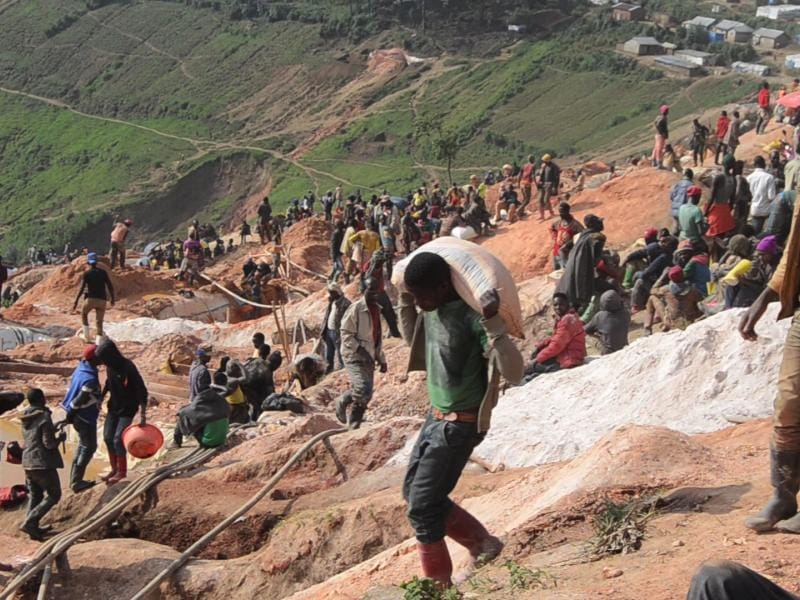
I’ve let all this sink in and consulted other Congo watchers, who were also processing the news. I reviewed and read several interventions by colleagues, from which I could conclude that they also did not fully understand it. The explanation by a French colleague interviewed by TV5 was by far the best; the honest man has been following the news in this region for years, he thought it was very good that talks are starting again but added some critical notes to make it clear that, contrary to what Trump claims, the road to sustainable peace in Congo will still be very long and filled with dozens of pitfalls.
M23
The most important point that the Rwandans have cleverly exploited is the fact that almost the entire conflict zone is currently de facto in the hands of the M23. It is said that the success of the agreement will largely depend on peace talks between these two protagonists in Doha.
“Rwanda played the game very smart,” begins one of my contacts within the M23. “They have dismantled Tshisekedi’s main argument that the M23 is a proxy unit of the Rwandan army, and the Americans are made to see that we are not Rwandans, but Congolese. The conflict can only be resolved if our demands are met: the safe return of the thousands of ‘Kongomani refugees,’ Congolese Tutsi who are still in camps in Rwanda and Uganda, recognition that this population group is ‘Congolese,’ and acknowledgment that the main troublemaker in the region is the extremist FDLR. The latter now forms the spearhead of the remaining FARDC (Congolese army) in the region, has been almost fully integrated into this army or what can continue fighting. The rest of the FDLR is currently hiding in Burundi. The Washington agreement teaches us that this FDLR will now have to be filtered out of the Congolese army, their families must be sent back to Rwanda to reintegrate there. This is the first, enormous pitfall that must be considered. The agreement also states that the Rwandan army will have to resolve this together with the FARDC. With the FDLR elements who remain still infiltrated in the area we have already liberated, we will deal with them ourselves. The new Washington agreement also indirectly grants us the necessary recognition as an organization whose goal is legitimate and with whom negotiations must be held."
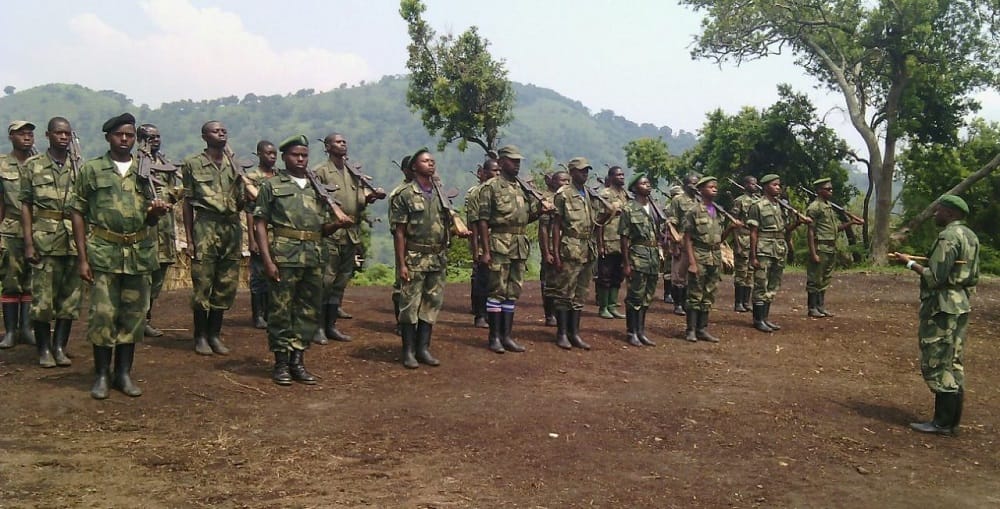
"They will also have to consider in Kinshasa the recognition of the ‘Kongomani’ as actual Congolese, not Rwandans. ‘Kongomani’ means ‘Congolese citizen’ , and that’s how we see ourselves. The M23 is now much stronger to negotiate with Kinshasa in Doha; until last week, they demanded that we has to withdraw and retreat, and the Congolese delegation kept hiding behind the peace agreement between Rwanda and Congo that was still being worked out. Their perception was that Tshisekedi’s move to enlist the Americans to get tough on us and Rwanda would work. Luckily, Washington opted for the reality on the ground. Tshisekedi was as proud as a peacock to have Trump on board but was badly mistaken. The Rwandans held firm that they only took defensive measures to block the FDLR threat and to prevent Tshisekedi, but also his Burundian colleague Neva, from plunging the region into a regional conflict. They rightly denied being the driving force behind the M23. The Pentagon and CIA knew this for a long time, and the State Department is no longer controlled by figures influenced by people such as Jason Stearns or the UN security experts. ”
“I am also very glad that this new agreement turns out to be positive for us,” adds Bertrand Bisimwa, one of the most respected and intelligent leaders of the M23. “But the road to Rome is still long, and I wonder how they will separate the chaff from the wheat within the FARDC; the FDLR almost fully forms part of the Congolese military units in this region, and if Tshisekedi gives that up, he will no longer have experienced warriors to rely on. Also note that another part of the FDLR is currently hiding in Burundi under the umbrella of the equally extremist General Neva. This problem also needs to be addressed.”
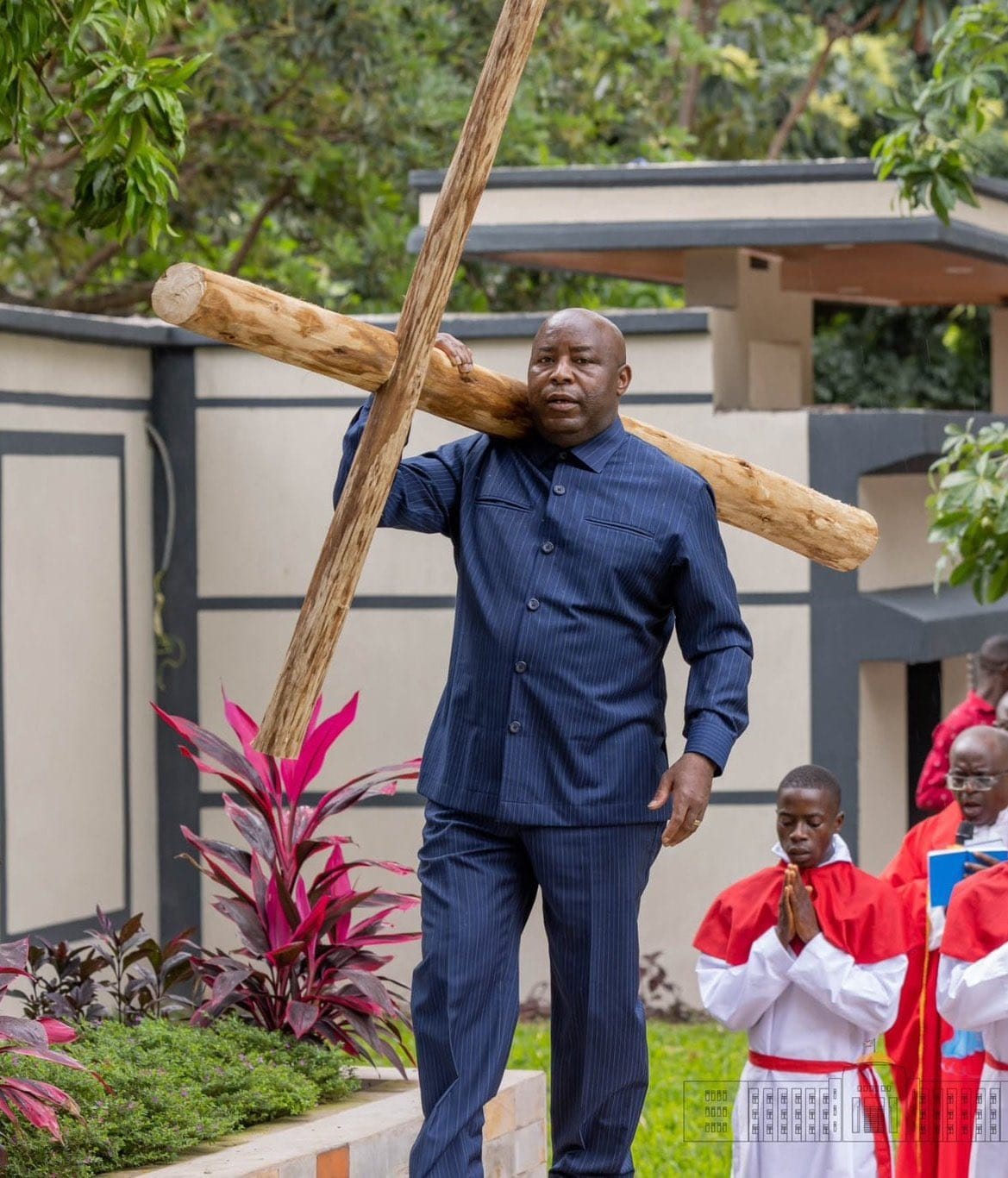
Regarding the ‘minerals’ part of the new agreement, the M23 is very direct ‘off the record.’ “Previously, that coltan mine in Rubaya was owned by a wealthy Congolese Tutsi who colluded with the FDLR to run it,” another M23 official tells us. “The man is now in prison in Kinshasa. Afterwards, Tshisekedi leased the mine to Burundian Hutu extremists in exchange for sending soldiers who were killed by the dozens. And now we control that mine. It’s of strategic value to us. Tshisekedi promised the Americans minerals in exchange for support. But the Rubaya mine, which he no longer has access to himself, is the only one he could rely on in his charm offensive. So, he sold them hot air. Our offensive to take Walikale, where a large tin mine financed by Americans is located was halted. We withdrew our troops upon their request from that region. Blackwater now has some mercenaries stationed there. Not that we fear them, but we didn’t want to offend Washington too much. Apart from the coltan mine in Rubaya, we don’t have other mineral stocks in our portfolio. Tshisekedi thus sold the Americans a dummy because the other Congolese mines in Kivu and oil concessions are controlled by Uganda. And I also don’t think Trump will have much success in taking over the mostly China-controlled mines (copper, cobalt, uranium, etc.) in Katanga.”
Rwanda
The Rwandan foreign minister called the peace agreement signed in Washington a historic step toward lasting peace in the region but immediately added that many very thorny issues still need to be addressed. He also said that first and foremost, the FDLR problem must be tackled in cooperation with the Congolese army. The signed agreement does not directly mention the presence of Rwandan troops in Congo, but it implies that Rwanda will adopt a less defensive stance once Hutu extremists no longer pose a threat. It also stipulates that foreign governments may not finance or arm local militias, which applies equally to Burundi and Uganda. Nothing is said about direct Rwandan support for M23 in the treaty. It is only stipulated that Rwanda cannot help them any longer in the future. What is included is that Rwanda agrees that the successful implementation of the Washington agreement is linked to peace talks between the M23 and the Congolese government in Doha.
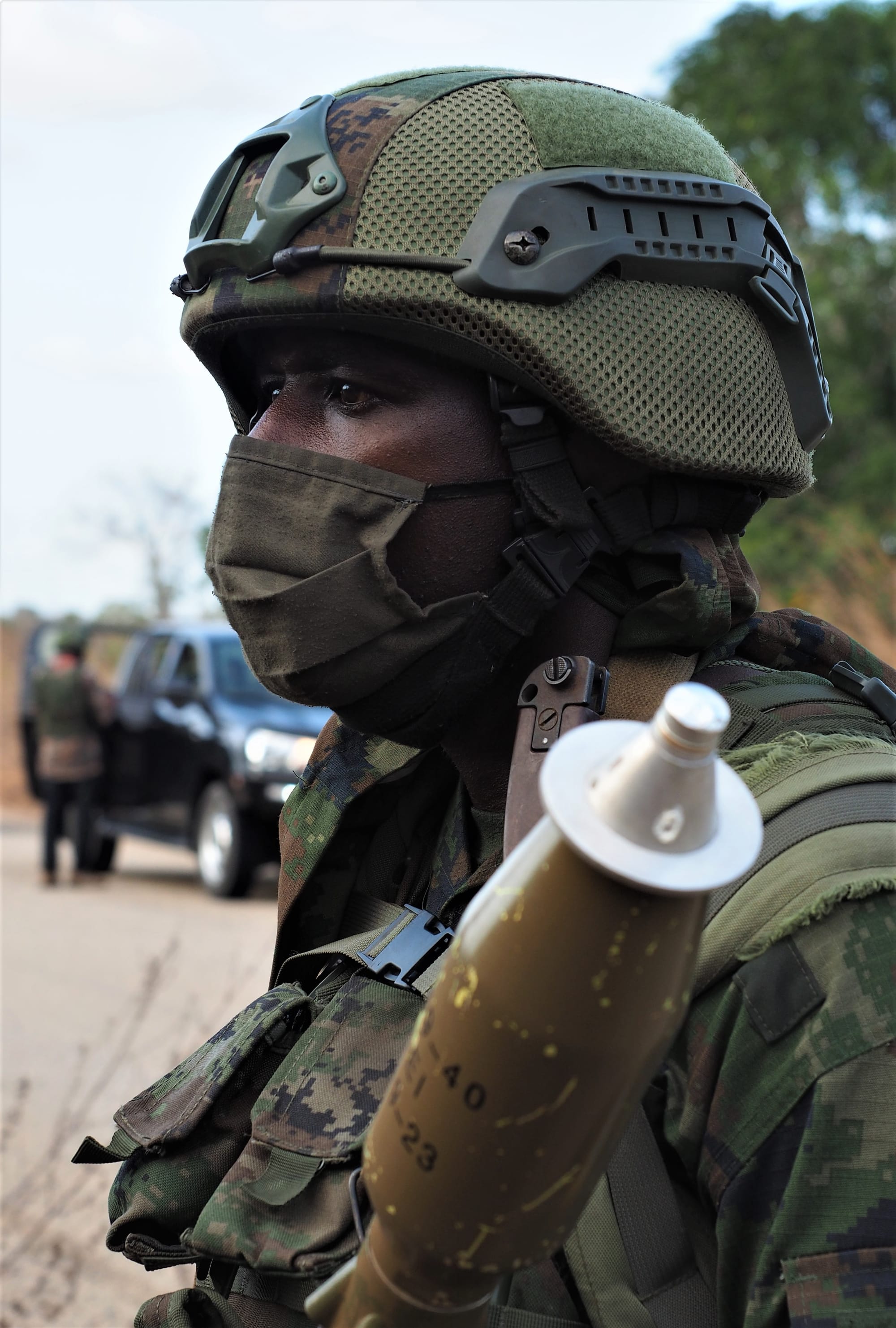
“I don’t quite understand how Rwanda managed to bypass and neutralize the entire anti-Rwanda discourse from UN experts, international media, and some European governments,” says an American Africa defense analyst who also often contacts me for extra information. “Trump was honest enough to say he didn’t really follow the entire conflict in Congo and added that it’s mainly resolved with machetes, to make his intervention seem more valuable and inflate it. But by not listening to the anti-Kigali lobby, which also has a lot of influence in the US, negotiator Massad Boulos was able to do a better job. I also think he bent to the arguments of Rwandan diplomats, who are much more straightforward and less hypochondriac than the Congolese. The Americans also knew that Tshisekedi’s army was defeated and that their concessions in Walikale risked being taken over by M23. The CIA is also very active in the region, and apparently, they don’t hold Kinshasa’s discourse in high regard. Kinshasa was caught up in the illusion that they were welcomed on a red carpet by Trump, while Boulos just stuck to the reality on the ground. Rwanda is not seeking war in Congo and is mainly acting defensively to counter the FDLR. As I assess the Rwandans now, they will follow this treaty to the letter, aware that Kinshasa will quickly start to manipulate its implementation. The Americans also know very well that the FDLR problem will further weaken FARDC structurally. And to keep everything on track, the UN will also have to back down as well. Rwanda now has almost no soldiers left in Congo and knows very well that M23 can do the job alone, with the weapons they seized from FARDC.”
“With this treaty, Rwanda has achieved a major victory and can stick its middle finger up to everything and everyone that or who criticized them in the past,” adds a Rwandan analyst. “But we are far from done with this discussion. Because we all know that the Congolese government, which now sees its American dream clouded in smoke and has played its last cards, can no longer do anything but negotiate with the rebels in Doha. Portraying Rwanda as the big dragon and boogeyman in this saga is now become impossible. And your American contact is right when he says Kigali will accept all agreements 'a la lettre'. If Tshisekedi doesn’t do that, he risks the same fate as President Mobutu.”
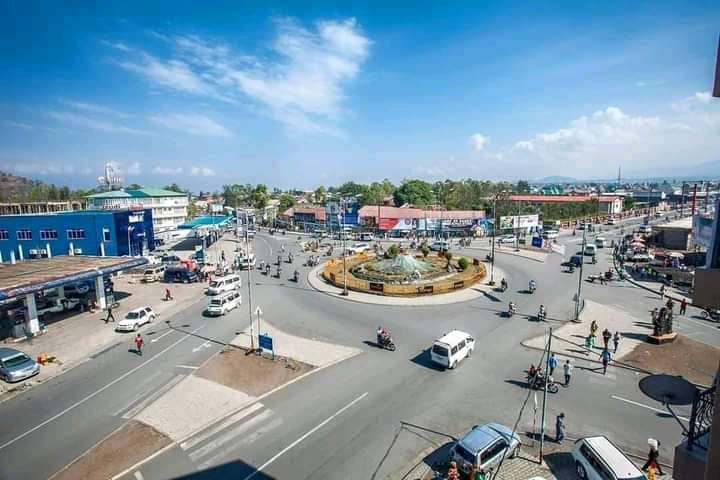
Doha and Goma
‘Everything is now focusing on Doha,’ a French journalist tells me. “Kinshasa now must negotiate with the M23, and these talks collapsed last week because the demands of the Congolese delegation were no longer up to date. M23 has won the war and has the potential to destabilize all of Congo. Katanga and/or Kisangani are within their reach. Tshisekedi’s initiative to form a sort of government – with the opposition – of national unity failed, and he could only persuade Martin Fayulu, a rabid Tutsi-hater, to cooperate. Joseph Kabila joined M23, Katumbi is watching from Lubumbashi, and Vital Kamhere is now also full of doubts. M23 holds the best cards in Doha; they will never accept to retreat and hand over their administration in their liberated zone back to Kinshasa. I am convinced that the Americans now realize that the Rwandans cannot order now the M23 to stand down. They did so in 2013, but the current context cannot be compared to ten years ago. I partly share the optimism of other observers, but Kinshasa will do everything to paralyze this process and blame Paul Kagame again. But the Rwandan president has already taken precautions against that.”
The negotiations in Washington are the talk of the day in Kigali and Goma. Yesterday, I met with some Tutsi-Congolese veterans who fought alongside Laurent Nkunda, in a small bar in Remera. Rwandan national television had invited some local analysts to comment on the agreement signed in Washington. The whole café was following the discussion. “They’re not talking about M23,” one of my Primus partners notes. “And even if the RDF (Rwandan army) is completely absent from the Congolese Kivus in a few months, we will remain the beaten dog in Kinshasa. Just because the Congolese public opinion is convinced and indoctrinated that all Tutsis are Rwandans. Scoundrels like Kabila and Tshisekedi have always exploited this to prolong the problems. The rebels of M23 look exactly like the RDF soldiers. So it remains too easy to accuse them. I hope the European and American leaders know this too. There is a lot of cheap racism in play here.”
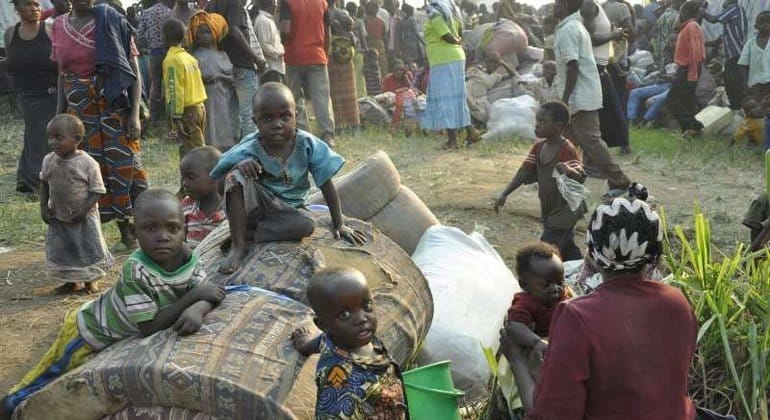
Conclusion
I was pleasantly surprised by the outcome of the talks in Washington, but I also share the opinion of my French colleague. The new deal is indeed historic because Kinshasa implicitly admits that the root cause of M23 must be reconsidered; their recognition as Congolese, the fact that their refugees are allowed to return and will be protected, the need to neutralize FDLR first, and direct negotiations with M23 in Doha. We also hear that Tshisekedi’s clique is already divided over this new reality: some of those believe the Congolese government has been duped, while others think it’s good that a more detailed peace plan is being worked on. The Rwandan foreign minister also mentioned that all previous peace initiatives failed. The chance is thus very high that this will happen again, and an agitated Tshisekedi might do even dumber things. The ball is now on his court. I must also admit that Trump’s ‘twist’ pleasantly surprised me; the man is clearly not an experienced realpolitik player. An official Rwandan source told me last week that I rely too much on European sources that are biased biased about Americans. He’s right (or mostly!). We will keep following this matter...
Marc Hoogsteyns, Kivu Press Agency
